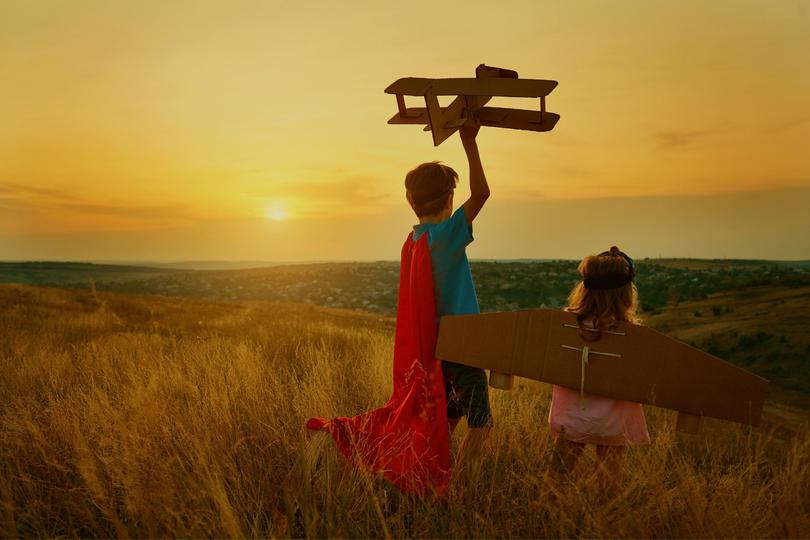Resilience - the defensive power of your soul
How you learn to cope with crises
I sit in my home office, have slept badly, a mountain of work and, on the side, the daily to-do's that everyone has on their piece of paper: Household, shopping, sports, family, friends, doctor's visits... The list is long. I look out of the window of my self-created workplace and wonder how parents actually manage to do all this. Sometimes I am already overwhelmed with myself and my life. So how is it possible for a mum or dad to manage everyday life? Do they exist, the superheroes? No. Not that. But I have got to the bottom of the question and have found other answers.

Resilience in response to crises, conflicts and defeats
What makes me strong and where do I get my strength from? As I deal with these questions, I come across Ariane Füchtner. She is an expert in this field and has fortunately offered to give me some explanations on this subject. I am directly confronted with a foreign word: Resilience. This term is not entirely new to me, but I am pleased that she explains resilience to me in simple words: "Resilience is the ability not to give up. No matter what sorrows, worries or illnesses you have in your life right now. To learn to overcome obstacles and to stay strong inside so that you are happy and content. Resilience also means making mistakes and asking others for help Sounds great, I think. That's exactly what I want to be able to do. Because Ariane Füchtner as a therapist and coach helps other people professionally to learn and train resilience, she tells me how she does it in her professional life: "I help people who are either very sad, angry, stressed or very anxious and feel weak because of problems in the family, at work or at school. With me, people can talk about what is happening and their stressful feelings and learn how to deal with it so that they feel strong and resilient again
Learning resilience - how to become strong
Each of us is therefore able to work on his inner strength and a good handling of challenges in everyday life. "Resilience is not a fixed parameter, but rather an interplay of various so-called protective factors that can be trained and learned," explains Ariane Füchtner in our interview and enumerates what constitutes a resilient person:
- The ability to be optimistic
- Have a positive self-image
- Accepting things that cannot be changed
- Set boundaries
- Be mindful
So maybe resilience can be seen as a puzzle, which is made up of different pieces. Another important piece of the puzzle would then be our feelings, says Ariane Füchtner: "The protective factors also include being attentive and being able to regulate our feelings, i.e. to be aware of how we are doing and to build us up and comfort us when we are not feeling well or to calm us down when we are excited or anxious" Resilience is our own inner defences. It makes us strong and is there for us when we encounter problems, challenges and crises in life.
An exercise for your everyday life: Change your perspective
Let's get back to the daily grind of parents. How does one become a superhero now? Ariane Füchtner has a good exercise that can help you: "Try to focus on what works and not on what doesn't work. This helps the body to regulate itself and relax. What new skills and talents did you (re)discover for yourself during the Corona crisis - such as a new hobby like cooking or a new professional skill like working online with colleagues? Or what was possible when you accepted the reality of lockdown and homeschooling, e.g. game nights with the family, mutual support from the neighbourhood. When you have found an example, no matter how small, observe what the memory of the positive experience does to you, what it feels like in your body when you think about it."
That sounds pretty logical to me and leads me directly to try the whole thing out. Of course it is only a small step in the stressful everyday life. But it's good to know that you can work on your own to master challenges better. Let's go!
Please note that these or similar exercises are no substitute for professional advice or supervision. So if you feel that your problems are overwhelming you, seek direct support. We have listed some places where you can get help.
We thank Ariane Füchtner for the time spent together and the opportunity to participate in her webinar "Resilience and Self-Regulation". Ariane Füchtner is an alternative practitioner for psychotherapy and is an expert for resilience and the regulation of the nervous system. She works mainly with Somatic Experiencing, a method for the solution of chronic stress and trauma. She has a private practice in Berlin and Potsdam. Feel free to contact her at www.fuechtner.net
Published on
Topics
Articles on the topic
-
Chances and child welfare- go for it!
Article from the Süddeutsche Zeitung

-
What is child sickness benefit and how can I apply for it?
All important information on children's sickness benefit

-
Job loss, job search and fear of the future
What you can do to get back on track

-
Corona - and then what?
How you can support your teenager with fear of the future

-
Parents between all chairs
Unclear specifications require responsible design

-
Not a romantic relationship, still family!
Experts explain how separated parents get along
